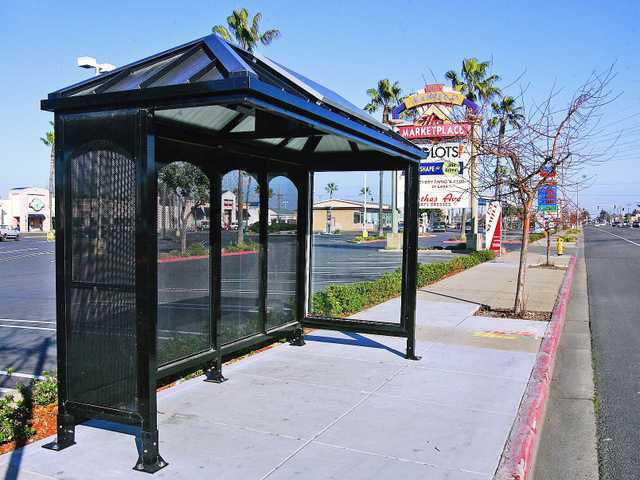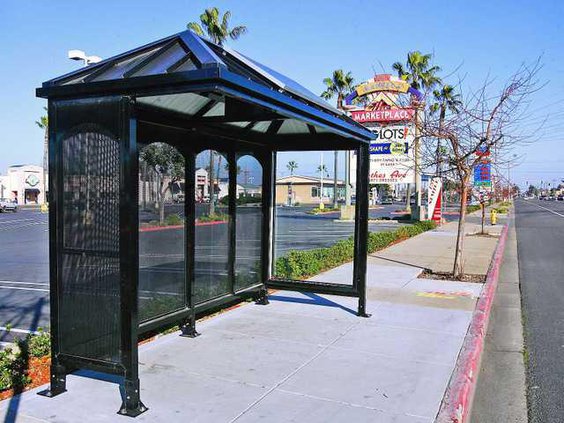Want to advertise religion on a Manteca bus shelter?
The City Council says amen, shalom, and alhamdulillah.
Elected leaders unanimously rejected a staff recommendation to prohibit religious and political advertising on the city’s 14 bus shelters. They also chose on Tuesday to ignore City Attorney John Brinton’s warning that city residents may not like some of the paid religious and political messages that might end up being displayed on municipal transit property.
Brinton said all it takes is one controversial ad to “open up the floodgates.”
“Get ready for the phone calls,” the attorney said.
But the council couldn’t stomach what Councilman Vince Hernandez said basically was lumping religion with pornography which is still on the list of banned advertising subjects.
Transit Director Johanna Ferriera said staff based the recommendation on federal guidelines as well as a bid to avoid controversy. The city accepted federal money for the bus shelters. That means it either had to allow all advertising including that of a public forum nature pushing competing political and religious views or narrowly restrict it only to enterprises trying to sell legal products.
When Ferriera told the council the proposed policy was based on one in place at Caltrains in the Bay Area, Hernandez suggested Manteca’s policy should reflect valley values that he indicated are a little less liberal than in San Francisco.
“I’m willing to take that risk,” Hernandez said of religious messages that some may find unsettling. “I think it is important to value who we are.”
Mayor Willie Weatherford agreed, adding, “It’s time somebody took a stand.”
Brinton had earlier pointed out the ordinance was crafted to minimize vandalism to city property. The fear was that religious or political messages that some did not like would invite destruction of city property.
Weatherford pointed out to Brinton that the Rotary mural on Maple Avenue that celebrates the service organization’s effort to wipe out polio around the world was vandalized by someone who said he disagreed with the politics of vaccines.
Councilman John Harris’s participation in the debate was simply one question he asked of Brinton: What are the words in the chambers above the U.S. Supreme Court dais?
“In God we trust,” replied Brinton.
Pastor Mike Dillman was among those who spoke in favor of the council allowing religious advertising. He started by noting that the council in the past had been on the cutting edge of championing religious rights.
“When will this madness stop?” Dillman asked of the federal government’s drive to sanitize public forums of all things religious. “In 1964 God was expelled from our schools.”
Dillman noted school prayers were general and non-denominational much like the invocation at council meetings. He added that because “one person” out of millions objected, prayer was taken out of schools.
The pastor added that every time there looks like someone might question whether the church and state are separated “we panic.”
The policy as adopted prohibits advertising that is considered false, misleading or deceptive; clearly inflammatory, obscene or pornographic, in advocacy of lawlessness or violent action, display weapons that appear aimed at a viewer in a menacing manner, the sale of unlawful or illegal goods and services promotes vandalism of advertising materials and associated city property, constitutes an infringement on property rights or copyright and unauthorized endorsements.
The city will contract with a firm to sell advertising and place it on the shelters. The city would receive a cut to help offset operating costs for the transit system.
Manteca blesses religious ads
Mayor: Its time somebody takes a stand



